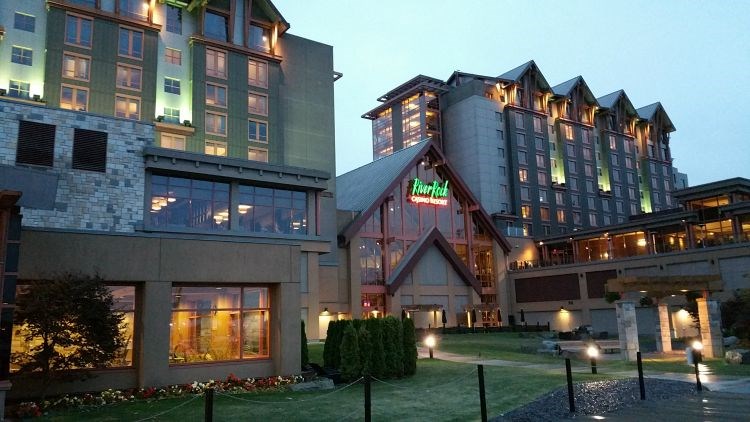The owner of Richmond’s River Rock Casino is this week being forced to defend itself amid allegations by a former illegal gaming watchdog that crimes were being ignored.
The former commander of B.C.’s dismantled Integrated Illegal Gaming Enforcement Team (IIGET), Fred Pinnock, told Global BC earlier this week that security staff at the River Rock alerted him in 2006 to alleged criminal activity in the casino of a known loan shark.
According to Pinnock, a security manager at the River Rock reacted by escorting the loan shark to an area of the casino not covered by cameras.
Pinnock claimed he alerted his superiors - and his partner provincial agency, GPEB (Gaming Policy and Enforcement Branch) – to the activity and suggested his unit set up a covert operation, but was told it had been investigated and was outside IIGET’s mandate.
Reacting to the allegations, Terrance Doyle, COO of River Rock’s owner, Great Canadian Gaming Corporation, said the RCMP has “never expressed any concerns to us about our company’s compliance with the laws and regulations that govern our industry, and Great Canadian is unaware of any allegations which may have been made to the RCMP.”
Doyle reiterated that his company “has a culture of integrity and transparency founded on our strict compliance with all applicable laws and regulations.
“There is no discretionary aspect to any Great Canadian employee’s compliance with regulation, policy, or procedure.
“Our structure and systems are designed to prevent inappropriate activity, and identify it should it occur.”
Doyle further pointed out that Richmond RCMP has acknowledged the company’s work on several occasions, including “outstanding assistance conducting surveillance reviews for [RCMP] members beyond the scope” of regular duties, including the installation of nearly 1,500 surveillance cameras, “well beyond what is required by BCLC regulations and more than any other gaming facility in B.C.”
B.C.’s Attorney General David Eby said the allegations made this week are “really serious,” adding that, if proven, he “can think of a number of violations of provincial law and policy and potentially criminality.”
Earlier this year, in his report on money laundering, Peter German wrote that loan sharks may be financed by organized criminals who are also involved in illegal activities such as money-laundering, which appears to be rife in B.C.’s casinos.
The IIGET was shut down in 2009 due to urgent “funding pressure” on the B.C. Lottery Corp., according to a confidential B.C. government memo obtained by the Vancouver Sun in March this year.
The 2016 memo for then finance minister Mike de Jong is the first known document indicating the illegal gambling task force was disbanded by B.C. officials, apparently for financial reasons.
Also, the document suggests, in the aftermath of the unit’s closure, organized crime in B.C. has been able to increase its reach into both legal and illegal casinos, for the purposes of money-laundering.
The document was prepared for de Jong by the aforementioned GPEB. It says that from 2003 to 2009, Pinnock’s IIGET investigated crimes surrounding “common gaming” houses, animal fighting, and bookmaking. The unit was not tasked with investigating money laundering in B.C.’s licensed casinos, the document says.
But IIGET managers in January 2009 filed a threat-assessment asking for an expanded role and warned of the potential influence of organized crime in B.C. Lottery Corp. regulated casinos.
Instead, in April 2009, B.C.’s illegal gambling task force was disbanded.
In March this year, Eby took new recommendations from the province’s independent anti-money laundering review to the nation’s capital to ask for federal help.



